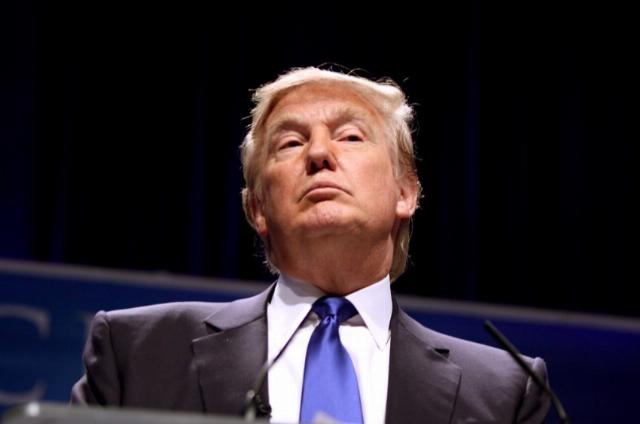Will Trump really end the Ukraine war in 24 hours?
The list of Trump’s team members is long, so let’s concentrate on a short list of “troika” candidates who deal with foreign affairs and national security, starting with secretary of state Marco Rubio.
As vice chairman of the Senate Select Committee on Intelligence and a Committee on Foreign Relations member, Rubio often warns that China, Russia, Iran, and North Korea are increasingly partnering against the United States. “They all share one goal, and that is, they want to weaken America, weaken our alliances, weaken our standing and our capability and our will,” he said in a recent speech. However, he sees Russia as an “acute five-year or ten-year problem, while China is a 100-year problem.”
When nominating Mike Waltz as his new national security adviser, Trump said that Waltz is a “nationally recognized leader in national security, and an expert on the threats posed by China, Russia, Iran, and global terrorism.....and will be a tremendous champion of our pursuit of Peace through Strength!”
Waltz said this during his recent interview on National Public Radio about ending the war in Ukraine: “First and foremost, you would enforce the actual energy sanctions on Russia. Russia is essentially a gas station with nukes, so that will get Putin to the table. We have leverage, like taking the handcuffs off of the long-range weapons we provided Ukraine as well.”
Trump also picked retired Army lt. gen. Keith Kellogg, former vice president Mike Pence’s national security adviser, as his special envoy to Ukraine and Russia. “Keith has led a distinguished military and business career, including serving in highly sensitive national security roles in my first administration. He was with me right from the beginning,” Trump said on his Truth Social account. “Together, we will secure peace through strength and make America and the world safe again.”
Trump didn’t say that Kellogg was a top security aide to Pence. Well, it was Pence who forced the firing of Trump’s national security adviser, General Michael Flynn, on February 13, 2017 — i.e., only 22 days after Flynn was sworn in for this position. Flynn shared and took Trump’s strategic goal of “getting along with Russia” seriously, and had he kept this job, he could have helped Trump to withstand the pressure from the Deep State and perpetrators of the “Russia Gate” scandal that ruined his presidency.
As for Kellogg, he and Fred Fleitz, who served in the National Security Council during the first Trump administration, proposed resolving the crisis by putting pressure on both sides: “Ukraine would only get more American weapons if it entered peace talks, while the Kremlin would be told that any refusal to negotiate would increase U.S. support for Ukraine.” This sounds like an ultimatum, and Putin is not known for yielding to threats. So where do we stand?
During his presidential campaign, Trump pledged that if he won, he would end the war within 24 hours, even before moving into the White House. This didn’t happen, and moreover, the fighting kept escalating. So one would assume the real action would start after January 20, 2025, but the team he has chosen to fulfill this pledge does raise mixed feelings.
In addition, the lame-duck Biden administration still has about seven weeks to ruin Trump’s peace plans. Biden has sped up new financial and military aid to Ukraine and wants Congress to authorize an additional $24 billion to keep the war going. Whether Congress passes this bill would be a litmus test for the Republican majority.
There continue to be vast partisan differences, according to a Pew Research Center survey conducted Nov. 12–17. Republicans are far more likely than Democrats to say the United States is providing too much support to Ukraine (42% vs. 13%). Republicans are also far less likely than Democrats to say the U.S. has a responsibility to help Ukraine defend itself against Russia (36% vs. 65%). Also, Republicans and Republican-leaning independents have long been less likely than Democrats and Democrat-leaners to see Russia’s invasion as a major threat to U.S. interests. And this partisan gap has grown. Just 19% of Republicans now say the invasion is a major threat, compared with 42% of Democrats.
According to Gallup, the majority of Ukrainians, after more than two years of grinding conflict, would like to see their country negotiate an end to the war as soon as possible. However, the Biden administration is pushing Ukraine to lower its minimum draft age from 25 to 18 to provide more cannon fodder for the war.

Image: Gage Skidmore via Flickr, CC BY-SA 2.0.
Ad Free / Commenting Login
FOLLOW US ON
Recent Articles
- How New York Is Abusing Zoning to Destroy Single-Family Homes
- MAGA and the Legacy Media Trap
- Democrats Pounce
- Biden’s Pardons Prove His Corruption
- A Bishop Insults Trump
- Does Capital Punishment Heal or Harm?
- Carteresque: Joe Biden Said Israeli Hostages Released by Hamas Terrorists Appeared to Be 'in Good Health'
- Remembering Trump's Journey
- Will Trump be a Titan Worthy of McKinley?
- Biden Handlers Announce New Regime
Blog Posts
- What are we to make of the ‘he’s a Nazi’ attack on Elon Musk?
- Trump's human side: Let's see more of this
- Trump is restoring what the locusts have eaten
- Texas Goodfellas: What are Republicans smoking?
- Being uncomfortable under foolish leaders
- Biden’s injudicious pardon of Fauci
- The inane 'magical realism' spewing from our universities must be stopped
- A disgrace at the National Cathedral
- LinkedIn fails against anti-Semitism
- Mars is part of our Manifest Destiny.
- It may be better for Liz to go mute for a while
- Mark Milley: pardons and mutiny
- Donald Trump and alternate reality
- Revoking the Lying 51's security clearances: Trump was more than justified
- Biden's pardons: getting away with murder






